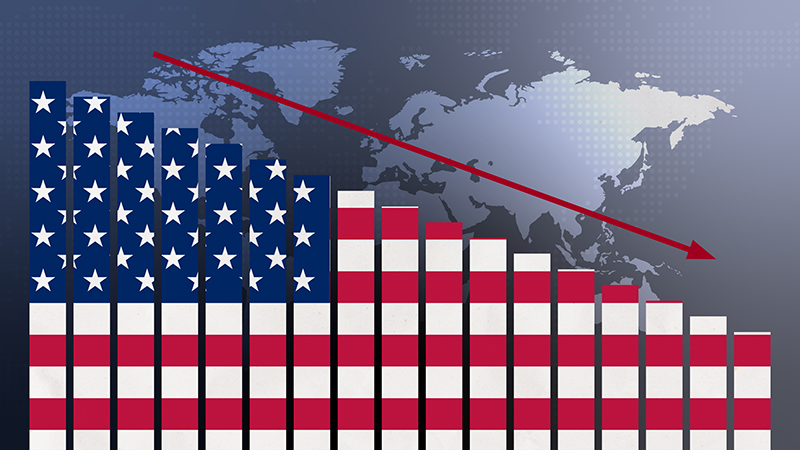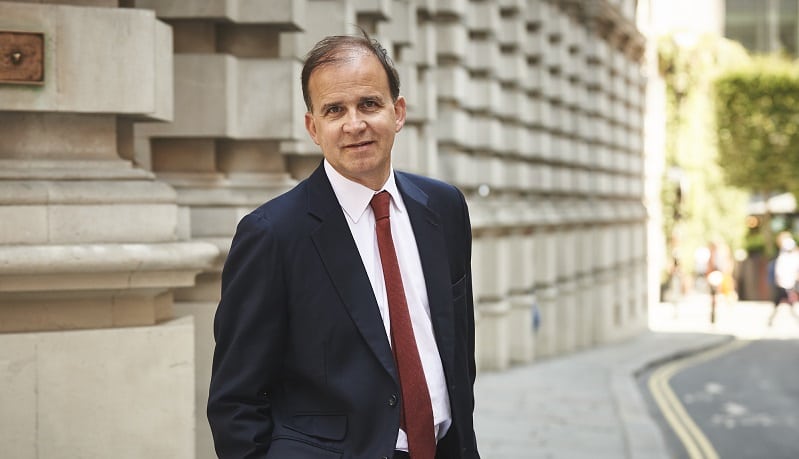Caspar Rock carries two sets of business cards. One is for business in the UK and Channel Islands under the Cazenove Capital brand. The second is emblazoned with the Schroders Wealth Management logo. “One’s at the front of the pocket, one’s at the back,” says the chief investment officer for both businesses.
“The Cazenove brand has really powerful and strong resonance in the wealth management business in the UK but is not as well-known overseas,” he says.
Cazenove rebranded as Schroders Wealth Management across Asia in Q3 last year but Rock says the brand is here to stay in the UK. It launched as a stockbroker in 1823, just five years after Schroders was established, also in the City of London.
The wealth management businesses represent £45.9bn of assets in total, according to the group’s 2017 annual report. Inflows contributed £2bn over the year while investment performance added £1.8bn. Rock works closely with the asset management business, which represents £389.8bn.
“It’s important to be plugged in and to use the Schroders strategies that are appropriate for our clients at that time.”
Schroders European Alpha Plus, Asian Alpha Plus and Strategic Credit are among the funds held by Cazenove portfolios at present. Model portfolios are distributed through the Schroders UK team. “We’re looking to develop that elsewhere,” he says, although there are no firm plans in place.
Reading between the lines
Rock joined from Axa-owned Architas in September 2017. “I went from a very small business to a small business backed by an insurance giant with amazing distribution. Here you have the two most trusted brands in asset and wealth management.”
Cazenove has the added benefit of direct client relationships, says Rock. In contrast, Architas runs its £23.3bn entirely on behalf of intermediaries. “We get to meet many clients and understand their interests and what they’re looking for. It’s a whole new dimension that I really enjoy.” However, advisers make up the majority of Cazenove business.
A decent funds-of-funds manager is able to get beneath marketing spin, according to Rock. “It’s trying to differentiate between what the PowerPoint slide says in the presentation and how they actually go about doing it,” he says. The Cazenove team attends approximately 300 fund manager presentations a year.
The self-described poacher turned gamekeeper used to be on the other side of the fence as an equities manager. “It’s seldom as precise as the PowerPoint slide might want you to think,” says Rock of presenting to fund selectors.
At Cazenove, he is now responsible for setting and communicating the investment strategy, liaising with colleagues in Schroders asset management and “spreading the gospel” about the business and its current take on markets.
Rock moved into fund management when he was at the Industrial Bank of Japan in 1990, having begun his career in bond arbitrage. He then joined Framlington Group, becoming head of pan-European equities in 1995 before moving into global healthcare in 2001. It was in 2006 that he moved into fund of funds at Framlington before joining Axa’s multi-manager start-up business.
While in single-strategy fund management, Rock says Italian banks were among the interesting opportunities he covered in European equities. In contrast, healthcare provided a lesson in valuing high-growth stocks, he says. “It was rather nice not having to worry about cyclicality.”
Being a growth investor was different still from his stint in fixed income. “Actively doing convertible bond arbitrage made you consider credit quality and if you’re a growth investor you think more about profit and loss and probably less about the balance sheet.”
Cazenove currently has a slight value tilt in portfolios over growth, says Rock. “The yield curve needs to steepen for financial stocks to outperform.”
Cyclical thinking
Axa tapped Rock to help build out its fledging multi-manager business not long after its 2005 purchase of Framlington for £174m. Managing funds of funds gave Rock, who studied statistics, “real insight” into analysing other managers in a role he says is half art, half science. He admits he is fascinated by portfolio analytics tools but says “you can’t live off maths alone”.
“Fund managers tend to think more on a relative basis about their benchmark, whether that’s the Eurostoxx, the FTSE 100 or the S&P 500. Wealth managers have to think about that but also about not losing money.” Cazenove clients tend to be focused on growth and capital preservation, he says.
Rock seeks strict sell disciplines from fund managers but says these are few and far between. “The timing and sizing of taking a position is what’s really interesting: how and when something gets into or goes out of the portfolio. There are few fund managers out there who have a very strict sell discipline, whether it’s a yield or price/earning discipline or internal price targets.”
Cazenove is a business cycle investor, says Rock. Taking the US economy as an example, he says business cycle indicators are not pointing to a slowdown and it looks fair for the rest of the year.
He is less certain about how strong it will be in H2 2019 and is keeping an eye out for canaries in the coalmine.
“Equity markets tend to peak about a year before the economy slows down or shows signs of slowing down. That’s the framework we’re thinking about and why we spend a lot of time looking at the business cycle.”
The business is currently examining clients’ equity weightings to make sure they’re in line with the mandate agreed. “As markets rise there is a temptation to take on more risk. Human nature says, ‘It’s gone up by a lot, so let’s buy some more, let’s take a bigger bet.’ Whereas it’s a good discipline to keep taking your profits.”
Sterling volatility also plays into equity weightings drifting upwards, he says. “If you have an overweight position in US equities and the US equity market hasn’t done very much but sterling has weakened, the US position’s gone up.”
The perfect investment – an undervalued opportunity nobody knows about – is currently a difficult find. He casts his mind back to the global financial crisis for an example, when closed-ended vehicles were trading at massive discounts to net asset value. “Mature books of private equity at huge discounts: that is almost as good as it gets.”
Diversifiers are also difficult to find in the current market environment. “It’s easier when government bonds yield more than they do today.”
Cazenove has been underweight the asset class for a considerable period of time. “If you’re in an environment of rising bond units, you want a shorter duration. That’s the first thing. The second thing is if you’re later in the credit cycle rather than earlier, you want to serially improve the quality of your credit exposure.”
Instead of bonds, portfolios are allocated to alternatives, such as real estate, infrastructure and renewables, as well as some absolute return and market-neutral strategies. Rock adds that there is a reasonable cash allocation.
Access all areas
Cazenove uses investment trusts to access less liquid assets such as commercial property. “We prefer to have monthly, quarterly dealing funds or closed-ended property investment trusts rather than an open-ended fund between 15% and 30% cash.”
Sometimes clients themselves will be the source of fund ideas, he says. “A lot of our clients are in the financial world.” Internal, Schroders and third-party research are also sources of information.
“There could be a default view that we would only buy a really big fund and I want to dispel that myth. We’re not just looking for the 800-pound gorilla, we’re looking for something nimbler.”
Without naming names, Rock says Cazenove holds several funds with less than £100m in assets, while it has just subscribed to an investment trust with a £50m market cap.
“In the past, we have seeded funds that are now huge and we are still looking for those opportunities today. It’s important that we find new talent to bring to our clients.” Findlay Park American is one such success story that now boasts $12.8bn AUM.
Cazenove will take its pick of “dogmatic” versus “pragmatic” managers when it comes to investing by style, stating the broader picture is more important.
“Let’s say you build a portfolio with three or four European equity managers. It’s more important to understand how they interact and if one changes their positioning how it changes the overall positioning of your European equity exposure.”
Cazenove draws on the asset management expertise within Schroders for direct equity and bond exposure. “We work very closely with the multi-manager and risk teams. It’s a real intellectual powerhouse.”











